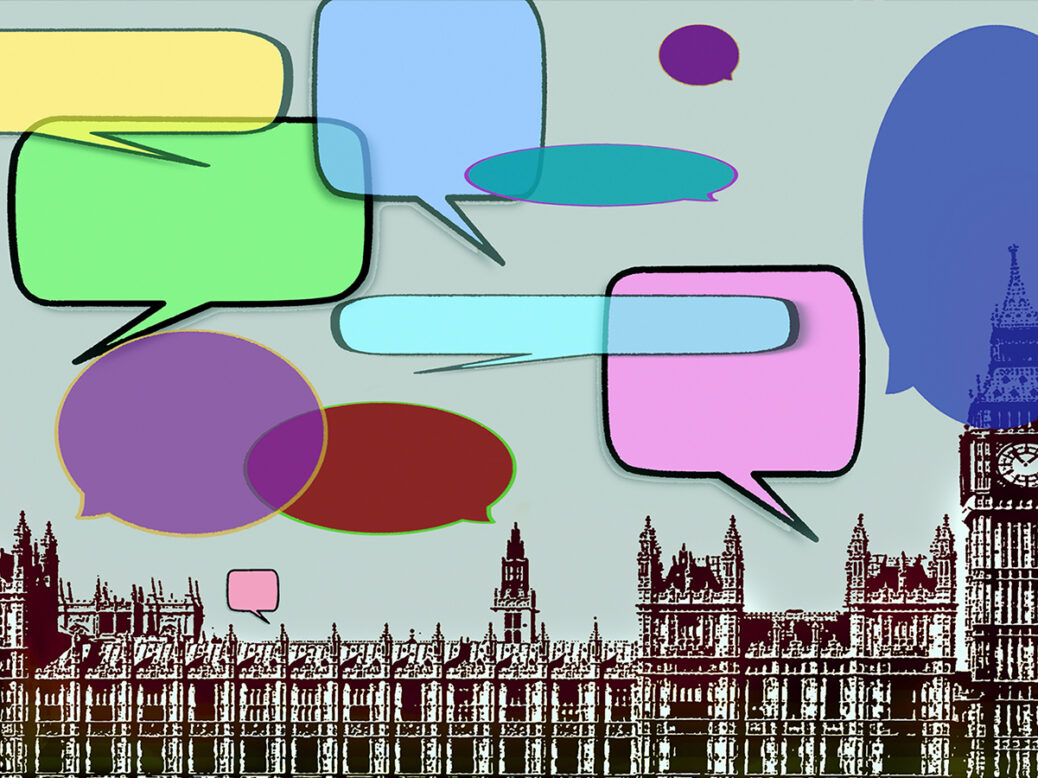
Last week’s news that Boris Johnson will join GB News should not be a surprise. The man who only ever seemed comfortable lampooning himself on television was returning to his spiritual home. But for once this wasn’t just about Boris. This was the latest in an ongoing saga: Britain has grown used to, even comfortable with, seeing former leaders chime in on the state of the nation from beyond the political grave.
As the country heads into an election year presided over by an incompetent government, a strange void of political meaning has opened up. Filling this chasm of conviction is a cadre of failed politicians who have stormed into the media landscape to offer the country assertive moral and political guidance.
This is Britain’s mediaocracy: the spectacle of rule via punditry, podcasts and political memoirs at the hands of pseudo statesmen. The mediaocracy is a failed establishment simulating its squandered power over our airwaves, streaming charts and social feeds.
Never before has the British public had such a feast of comment and opinion as it comes to terms with a lost decade of government. Wages have stagnated. Significant infrastructure has not been built. Debt has risen. The NHS, even prior to the pandemic, was wobbling. Trust in all institutions, from the police to the BBC, is down and the country is mired in intractable debates, from immigration to the meaning of modern British identity, that no politician can build modest consensus on.
[See also: My investigation into Russell Brand]
Yet the nation’s debate is awash with its political ghosts. See George Osborne and Ed Balls set an example of how to “talk across the political divide”, in their new podcast Political Currency, so far pulling the curtain back on the sound and fury of the austerity years to reveal how much the pair actually agree with each other. Match this with the notoriously agreeable duo of Alistair Campbell and Rory Stewart in The Rest is Politics, a disturbingly popular paean to the mythic years of “sensible politics” that sells out theatres faster than any stand-up comic could.
Theresa May, in government for nine years, now repositions herself as a cosy statesman a la John Major, theorising, in her new book, on the abuses of state power having overseen the Windrush scandal. The former Brexit minister Jacob Rees-Mogg gives his nightly “state of the nation” on GB News while Lee Anderson, deputy chairman of the Conservative Party, bangs the drum on stopping the boats and waging war on woke with the vindictive zeal of a man in opposition.
It is a curious irony then that those largely responsible for, or currently presiding over, this decade of long-term decline have somehow come to position themselves as its soothsayers. Increasingly, it seems that to fail in British politics is not to have one’s hubris tamed, but to qualify as an expert in how to really run the country.
The mediaocracy also offers a warning about the nature of power in our political system. The problem is not our politicians, but the establishment they fail in. They were victims of the system, or so they tell their new audiences, and now they are here to impart their wisdom. Cameron and Osborne toyed with the will of the people and failed. During Brexit May was another victim of her party. Johnson fell afoul of his MPs and a conspiring civil service. Kwasi Kwarteng and Liz Truss upset the dogmatic “left-wing” bond markets. The ever present opportunities gifted by Britain’s mediaocracy are thus an ongoing deferral of responsibility, a denial of the consequences of poor decisions and a retreat into revisionist punditry.
Yet for a British right facing electoral annihilation, there is another important lesson here about the use of influence in the political afterlife. Compare the talking heads of Britain’s mediaocracy with the path chosen by Tony Blair, of equal unpopularity to Johnson, who has shunned its spectacle to set up his own think tank and “government institute”. He has “done the work”, as ambitious Americans like to say, and now he looks set to become a modern Lazarus in the next Labour government.
GB News is becoming the greatest receptacle of Britain’s mediaocracy. It is making clear overtures to become a clearing house for the British right after the probable decimation of the Conservative Party in 2024. But unlike Blair these politicians increasingly look to have chosen the wrong medium of influence, forever trapped in the irreverent pantomime of broadcasting and punditry now so keen on simulating rather than enacting power.
Johson’s show will therefore reveal Britain’s mediaocracy for the sham it is: a feast of nostalgia, revisionism and self-promotion. It will be a chance to once again indulge in his own mythos, now tainted by his failures as prime minister. This will be a fitting tribute to the illusion of not just Britain’s mediaocracy but the media culture that has enabled it: a maelstrom of soundbites, gossip and speculation that never quite touches on the perennial dysfunctions of the British state. In the Britain of 2023, if you can’t rule, then become a pundit.
[See also: Who runs the show?]





